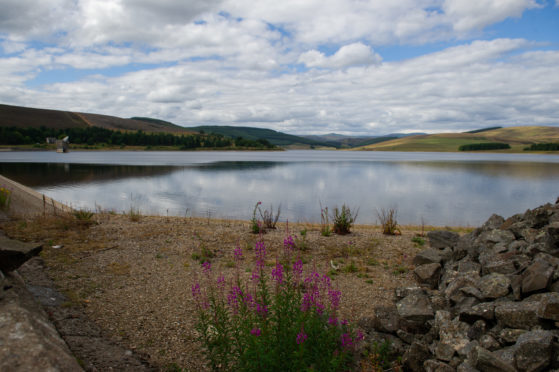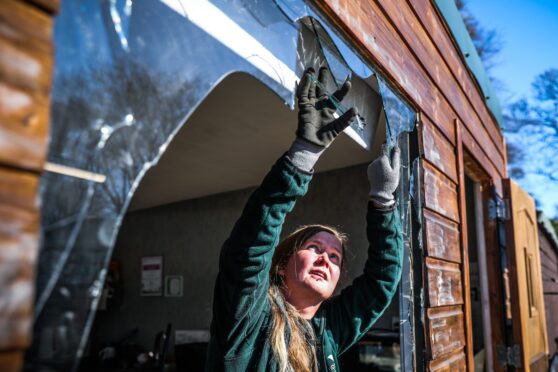With no let-up in sight for the prolonged dry spell, Scottish Water has issued assurances there are no immediate plans to introduce a hosepipe ban.
The company has confirmed it is closely monitoring water levels across the country, including the Backwater Reservoir in the Angus glens.
The reservoir’s sole purpose is to provide drinking water and supplies households and businesses in Angus, Dundee and parts of Perth and Kinross.
Backwater, together with the smaller Lintrathen Reservoir four kilometres to the south, is capable of supplying some 300,000 people with drinking water.
Millions of people have been affected by the first hosepipe ban of the summer in England.
United Utilities said a temporary ban affecting seven million people in the north-west of England from August 5 would “safeguard essential supplies”.
It said reservoir levels were already low and hot weather was forecast for the rest of July.
However, Scottish Water has dismissed suggestions a similar ban would be put in place north of the border.
A Scottish Water spokesperson said: “Levels at Backwater Reservoir are around normal for this time of the year.
“We are closely monitoring water levels across the country to ensure there is no impact on customers’ supplies.
“We would like to thank customers across the country for their help after we urged them to use water wisely by doing things like using a watering can rather than a hose to water plants or wash the car.
“This helps us ensure supplies across the country can be maintained during this long spell of dry weather and we would continue to urge customers to use water wisely.
“There are no plans to introduce a hose-pipe ban in Scotland at this time.”
Scottish Water has urged people to think about ways to save water during their daily activities as a result of the prolonged dry weather.
A hosepipe uses around ten litres of water per minute and garden sprinklers use around 15 litres a minute. A sprinkler left on for an hour is the equivalent to six times a person’s average daily water use.
Peter Farrer, Scottish Water’s Chief Operating Officer, said: “By encouraging simple but important changes to how people use water during the warm weather like the summer we’re enjoying currently, this will make a big difference to the flow of water around the network and protect supplies.”










